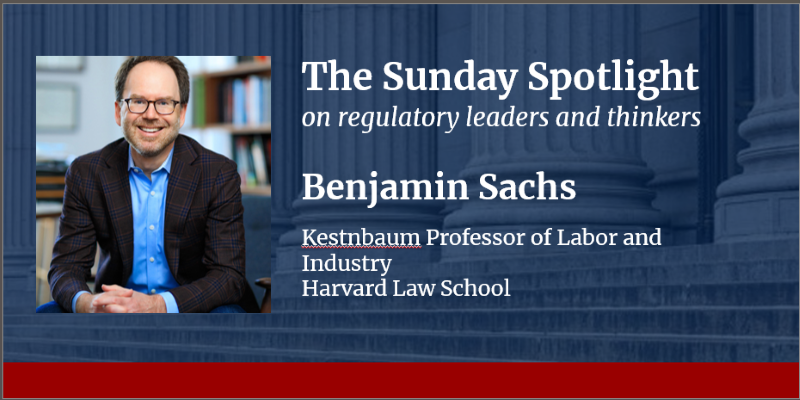Exploring Labor Law Reform with Benjamin Sachs
The State of Labor Law in America
Benjamin Sachs, a leading authority on labor and industry at Harvard Law School, emphasizes the urgent need for reform in the National Labor Relations Act (NLRA). This legislation, originally enacted in 1935 to support workers’ rights and promote collective bargaining, has faced criticism for failing to protect these fundamental rights adequately.
Failures of the NLRA
Sachs points to several pressing failures within the NLRA’s framework. Key among these issues is the law’s inability to effectively shield employees from employer interference during unionization efforts. Currently, union representation among private-sector employees stands at less than 6%, despite over half of the workforce expressing a desire to join unions. Furthermore, worker approval ratings for unions are at the highest recorded levels.
One alarming statistic highlights that approximately 20% of workers who take active roles in organizing efforts face termination. Additionally, the NLRA predominantly supports firm-level bargaining, which motivates management to view unionization as a competitive threat.
Proposed Reforms
Addressing these shortcomings, Sachs collaborated on the “Clean Slate for Worker Power” report, advocating for a comprehensive overhaul of the NLRA. This report outlines critical reforms, which include:
- Providing workers with various representation options at the workplace level.
- Establishing sectoral bargaining to complement existing workplace negotiations.
- Strengthening protections against employer retaliation for union organizing.
- Expanding the range of negotiable subjects and collective actions protected by law.
The Role of the NLRB
The functionality of the National Labor Relations Board (NLRB) has also been compromised, particularly following the removal of board member Gwynne Wilcox by President Trump, which left the board without a quorum. This vacancy highlighted the fragility of workers’ rights, as the NLRB was effectively unable to enforce labor law protections, leaving employees without recourse.
State and Local Authority in Labor Relations
Sachs discusses the dichotomy of federal and state regulation of labor relations. Ideally, a strong, uniform federal labor law would protect workers consistently across the U.S. However, due to the inadequacies of the current federal regime, exploring state and local approaches to labor law may be beneficial. States could potentially create innovative laws that enhance workers’ rights, leading to broader reform at the federal level.
Particularly, state and local governments can enact laws granting organizing and bargaining rights to workers excluded from NLRA protections, such as agricultural and domestic workers, as well as independent contractors and gig workers. Such initiatives do not face the same preemption issues currently limiting state actions under federal law.
Limitations of NLRA Preemption
While NLRA preemption restricts many state interventions in labor relations, exceptions exist. State and local efforts for workers outside the NLRA’s coverage are allowed and can play a vital role in protecting those at the most risk. Moreover, ongoing constitutional challenges to the NLRA may lead to a reevaluation of its preemptive powers, potentially opening doors for more localized labor law innovations.

